First Preference For Family-Based Visas
Portions of the content on this page are available as public information on the USCIS website.
Criteria for Eligibility
Individuals seeking to come to the US for the academic study will likely apply for the F-1 visa category. F-1 visas are usually for individuals coming to study in the US as full-time students at an accredited university, college, institution of higher education, private high school or elementary school, language training program, or other academic institutions. The key requirement is that the F-1 student is enrolled in a course of study that ends in a degree, diploma, or certificate from a school that is authorized to accept international students.
The required documentation for this visa falls under 3 main categories:
| Basic Documents | Documents Proving Intent to Study | Documents Proving Home Ties |
|
|
|
Application Process
- You must be accepted to an academic program in the US that allows F-1 students.
- Complete Form DS-160.
- Schedule your visa interview (not required for children under 14 years or adults 80 years and older).
- Pay the required visa application fees.
- Complete your visa interview and fingerprint scans.
- Enter the US on your F-1 visa
- NOTE: New F-1 students may only enter the US no more than 30 days before their academic studies start in the US.
Validity Period
The F-1 visa is valid for the duration of the academic program the student is enrolled in. This time period is defined on the Form I-20 issued by the US school.
F-1 students may work at their US school while studying. After the first year of study, F-1 students are allowed to work off-campus in jobs related to their course of study. This work is called either Curricular Practical Training (CPT) or Optional Practical Training (OPT). F-1 students are required to apply for and obtain an Employment Authorization Document (EAD) from USCIS in order to start working.
F-1 students must leave the US no more than 60 days after the academic program is finished unless the student is authorized to remain and work in the US under OPT. OPT allows the F-1 student to gain experience in their field of study by working in a related job. After completing the study program, OPT can last up to 1 year for most fields of study and up to 3 years for F-1 students studying in science, technology, engineering, or mathematics (STEM) field. F-1 students have 60 days to leave the US after completing OPT.
Family of Visa Holder
The spouse and unmarried, minor children of F-1 students may apply for and obtain F-2 visas to come and live with the F-1 student while studying in the US. Minor children can attend school while with the F-1 student in the US. F-1 spouses may study part-time in the US but are not allowed to work in the US.
We Represent Clients Nationwide And Around The World
Contact Us To Learn More
Call David Hirson & Partners, LLP, in Costa Mesa, California at 949-441-4003 or our Seattle, Washington, office at 206-926-3973 or contact us by email to arrange a consultation with one of our immigration attorneys today.
Disclaimer: The use of the internet or this form for communication with the firm or any individual member of the firm does not establish an attorney-client relationship. Confidential or time-sensitive information should not be sent through this form.

